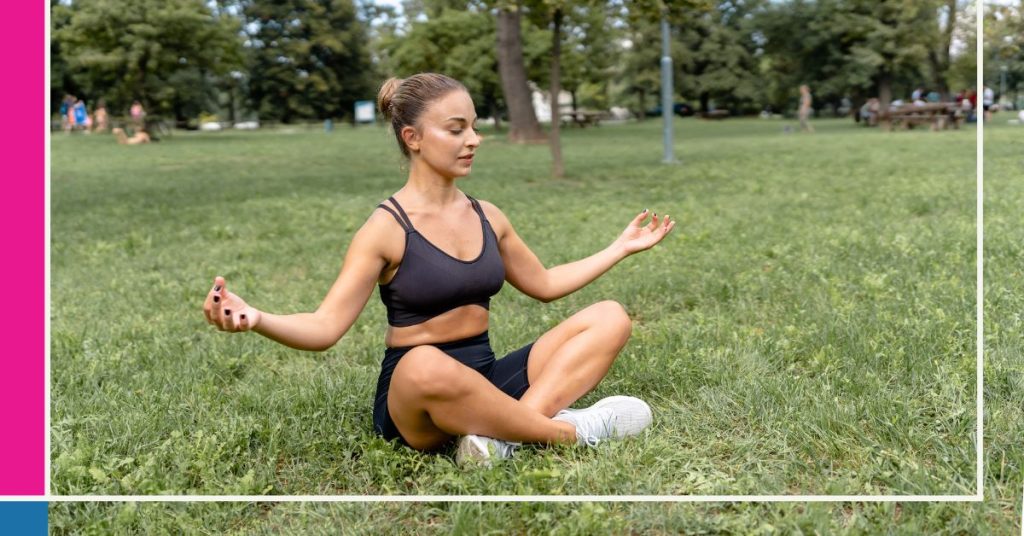Introduction
At Midlife Runners Paradise, we believe in more than just running for fitness. Our mission is to foster resilience, health, and joy through our comprehensive running framework. As part of Midlife Runners CIC, we aim to redefine wellness for those over 40, blending physical activity with mental well-being. This holistic approach is at the core of our Midlife Runners Paradise (MRP) framework, which integrates heart-based training, 80/20 strength training, and run/walk strategies. But why is mental health important, especially for aging runners?
Mental health is a crucial aspect of overall wellness, influencing not only how we feel but also how we perform physically. For runners, maintaining good mental health is essential. It helps in managing stress, improving focus, and fostering a positive outlook. This is particularly important as we age, when mental resilience can significantly impact our ability to stay active and healthy.
Our MRP framework emphasizes mental resilience alongside physical training. By combining strategies for mental well-being with physical exercise and healthy nutrition, we create a balanced approach that supports lifelong health and happiness. Whether you’re navigating personal challenges or seeking to enhance your running experience, prioritizing mental health is key to achieving your goals and enjoying a fulfilling life.
Understanding Mental Health in the Context of Aging
What is mental health, and why is mental health important for aging runners? Mental health refers to our emotional, psychological, and social well-being. It influences how we think, feel, and act, especially when dealing with stress. Good mental health helps us manage life’s challenges, build strong relationships, and make informed decisions.
As we age, maintaining mental health becomes increasingly vital. Aging can bring about significant changes and challenges, such as retirement, health issues, and shifts in social dynamics. For runners over 40, these challenges can impact motivation, consistency in training, and overall enjoyment of the sport. Common mental health issues such as anxiety, depression, and cognitive decline can further complicate these challenges.
Runners need to recognize the importance of mental health in maintaining overall well-being. A healthy mind contributes to better physical health, enhancing running performance and reducing the risk of injury. It also fosters resilience, helping runners to stay motivated and positive despite setbacks.
At Midlife Runners Paradise, we emphasize a holistic approach that includes mental resilience as a core component. By understanding and prioritizing mental health, aging runners can improve their quality of life, stay active, and enjoy the numerous benefits that running offers. Fostering mental well-being is not just about handling the challenges of aging but thriving through them, ensuring a balanced and fulfilling life.
The Impact of Mental Health on Physical Performance
Understanding why mental health is important for aging runners involves recognizing its direct connection to physical performance. Mental health influences every aspect of our lives, including our ability to engage in and benefit from physical activities like running.
Research shows that good mental health can enhance physical performance, while poor mental health can hinder it. For example, anxiety and stress can lead to increased muscle tension and fatigue, making it harder to perform well during runs. Depression can sap motivation and energy, causing runners to skip workouts or not push themselves as hard. On the other hand, positive mental health can boost motivation, increase endurance, and improve overall performance.
One effective way to improve mental health and, consequently, physical performance is through heart-based training. This approach focuses on maintaining a heart rate that supports mental and physical well-being. By keeping your heart rate within a certain range, you can reduce stress and promote relaxation, making your runs more enjoyable and less taxing on your body. Heart-based training encourages a mindful approach to running, where you listen to your body and adjust your pace to maintain a healthy heart rate.
Additionally, incorporating mental health strategies such as mindfulness and meditation into your training routine can further enhance your performance. These practices help reduce stress, improve focus, and increase overall mental resilience. When your mind is calm and focused, your body can perform at its best.
At Midlife Runners Paradise, we integrate heart-based training into our programs to ensure that our runners not only achieve their physical goals but also maintain a balanced and healthy mind. By understanding and addressing the impact of mental health on physical performance, aging runners can improve their running experience and overall quality of life. Prioritizing mental health is a key component in achieving long-term success and happiness in running.
Strategies to Improve Mental Health for Aging Runners
Understanding how to improve mental health is crucial for aging runners who want to maintain their physical and mental well-being. Here are some actionable tips and strategies to help you enhance your mental health and boost your running performance.
Practice Mindfulness and Meditation
Mindfulness and meditation are powerful tools for improving mental health. They help reduce stress, increase focus, and enhance overall emotional well-being. Start with simple mindfulness exercises, such as paying attention to your breath or observing your surroundings during a run. Meditation can be practiced for a few minutes daily, using apps or guided sessions to help you get started.
Maintain Proper Nutrition
Nutrition plays a significant role in mental health. A balanced diet rich in fruits, vegetables, whole grains, lean proteins, and healthy fats can improve mood and energy levels. Omega-3 fatty acids, found in fish and flaxseeds, are particularly beneficial for brain health. Staying hydrated is also essential for maintaining mental clarity and overall health.
Incorporate MRP’s Training Methods
At Midlife Runners Paradise, we emphasize training methods that support both physical and mental well-being. Our heart-based training helps maintain a healthy heart rate, reducing stress and promoting relaxation. The 80/20 strength training method—where 80% of your effort is at low intensity and 20% at high intensity—prevents burnout and keeps training enjoyable. Our run/walk strategies are designed to make running sustainable and fun, helping you stay motivated and mentally resilient.
Stay Connected with Community
Social connections are vital for mental health. Joining a running group or participating in online forums can provide support, motivation, and a sense of belonging. Sharing experiences and goals with others can reduce feelings of isolation and boost your mental well-being.
Set Realistic Goals
Setting achievable goals is essential for maintaining motivation and mental health. Break down larger goals into smaller, manageable steps. Celebrate your progress, no matter how small, and adjust your goals as needed to stay on track without feeling overwhelmed.
By incorporating these strategies into your routine, you can significantly improve your mental health and enjoy a more fulfilling running experience. At Midlife Runners Paradise, we are committed to helping you achieve a balanced approach to physical and mental well-being. Remember, prioritizing your mental health is key to enjoying a lifelong passion for running and staying active.
Recognizing and Addressing Mental Health Crises
Understanding what a mental health crisis is and recognizing its signs are crucial steps in maintaining overall well-being. A mental health crisis is a situation where a person’s emotional or mental state is so severe that it requires immediate intervention. This can include extreme anxiety, panic attacks, severe depression, or suicidal thoughts.
Signs of a Mental Health Crisis
Common signs of a mental health crisis include:
- Overwhelming feelings of sadness or hopelessness.
- Extreme anxiety or panic attacks.
- Sudden withdrawal from social interactions.
- Dramatic changes in sleep or eating patterns.
- Thoughts or threats of self-harm or suicide.
Immediate Steps to Take
If you or someone you know is experiencing a mental health crisis, it’s essential to act quickly:
- Seek Immediate Help: Contact a mental health professional, a crisis hotline, or go to the nearest emergency room.
- Stay Connected: Reach out to trusted friends or family members for support.
- Create a Safe Environment: Remove any potentially harmful objects and stay in a secure location.
Importance of Early Intervention and Diagnosis
Early intervention is critical in preventing a mental health crisis from escalating. How to get a mental health diagnosis involves consulting with a mental health professional who can assess your symptoms and provide an accurate diagnosis. This process might include interviews, questionnaires, and sometimes physical examinations to rule out other conditions.
Understanding what does relapse mean in mental health is also vital. A relapse refers to the return of symptoms after a period of improvement. This can happen due to various triggers, such as stress, changes in medication, or significant life events. Early recognition and addressing these triggers can help manage and prevent relapses.
At Midlife Runners Paradise, we emphasize the importance of mental resilience and provide resources to support our runners through challenging times. Addressing mental health crises promptly and effectively can lead to better outcomes and a more balanced, fulfilling life. Prioritizing mental health ensures that you can continue to enjoy running and maintain overall well-being.
The Role of Mental Health Technicians and Resources
Understanding what is a mental health technician and their role can be vital for aging runners seeking to prioritize their mental well-being. Mental health technicians are trained professionals who assist in the care and treatment of individuals with mental health issues. They work under the supervision of psychiatrists, psychologists, and other mental health professionals to provide support, monitor patient progress, and ensure the safety and well-being of those in their care.
Benefits of Mental Health Technicians
Mental health technicians play a crucial role in the mental health care system. They help with:
- Conducting patient assessments and recording observations.
- Implementing treatment plans and therapeutic activities.
- Providing emotional support and crisis intervention.
- Assisting in the development of coping strategies and skills.
Accessing Mental Health Services and Getting a Diagnosis
How to get a mental health diagnosis involves several steps. First, consult with your primary care physician, who can refer you to a mental health specialist. Alternatively, you can directly reach out to a psychologist or psychiatrist. The diagnostic process may include interviews, questionnaires, and sometimes physical exams to rule out other conditions.
Available Resources for Mental Health Support
There are numerous resources available to help aging runners access mental health support:
- Local Clinics and Hospitals: Many offer mental health services and support groups.
- Online Platforms: Websites like BetterHelp and Talkspace provide online counseling and therapy sessions.
- Crisis Hotlines: If you’re in immediate need, crisis hotlines like the National Suicide Prevention Lifeline offer 24/7 support.
- Community Programs: Many communities have mental health programs and workshops designed to provide education and support.
By leveraging the expertise of mental health technicians and utilizing available resources, you can ensure comprehensive care for your mental health needs. At Midlife Runners Paradise, we encourage taking proactive steps to address mental health, enhancing your overall well-being and running performance.
Conclusion
In conclusion, understanding why mental health is important is essential for aging runners looking to maintain overall well-being and enhance their physical performance. Mental health directly impacts our ability to manage stress, stay motivated, and enjoy the many benefits of running. As we age, prioritizing mental health becomes even more crucial, helping us navigate life’s challenges with resilience and positivity.
At Midlife Runners Paradise, our holistic MRP framework integrates heart-based training, balanced strength workouts, and run/walk strategies to support both physical and mental health. We believe that fostering mental resilience, practicing mindfulness, maintaining proper nutrition, and seeking professional help when needed are all vital components of a healthy, active lifestyle.
By adopting proactive mental health practices, you can improve your quality of life, stay motivated, and continue enjoying running well into your later years. Remember, mental health is a cornerstone of overall wellness, and prioritizing it will lead to lifelong happiness and fulfillment. Join us at Midlife Runners Paradise and take the first step towards a balanced, healthy future.





